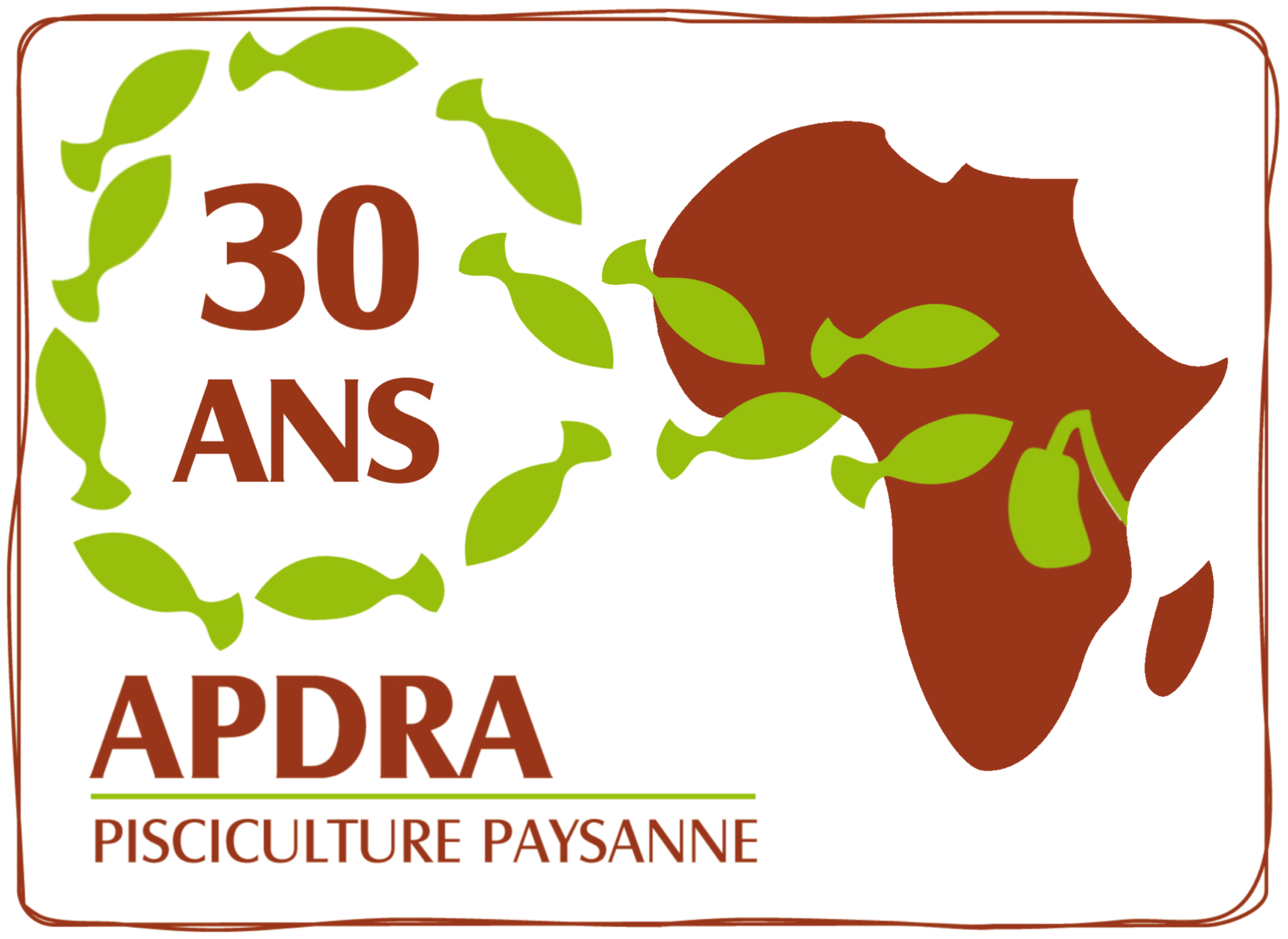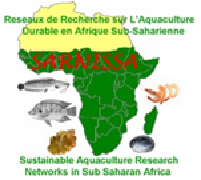1996 – The origins
In Africa, many agricultural producers wish to practice pisciculture to respond to the increasing demand in fish but their initiative are unsuccessful and at an institutional level many wonder if such activity will ever develop. In the 90’s, in the Central West region of Ivory Coast, a group of young assistant technicians join some producers in their search for a performing pisciculture model, integrated in the family exploitations. The model of extensive pisciculture in dam ponds that they put in place turns out to have a high development potential in the context of a plantation economy. A first association, APRDRA-CI, is founded in 1994 to promote the model at a national level. Then in 1996 a second association is founded: APDRA-F (Pisciculture and Rural Development Association in Humid Tropical Africa – France). Subject to French Law, it allows an extension of the activities beyond Ivory Coast.
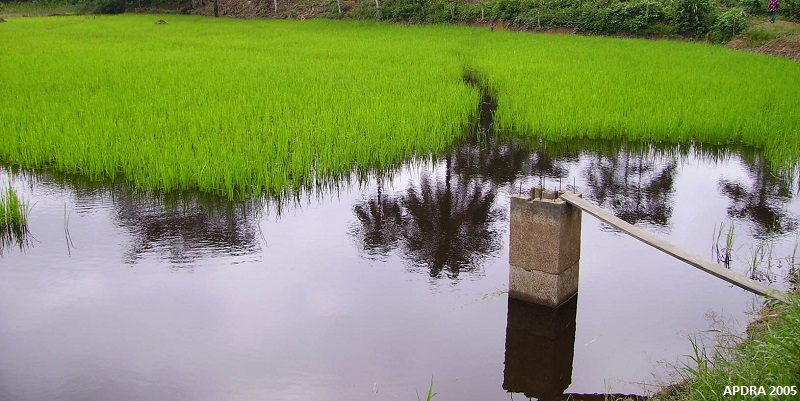
1996-2006 – Development of Rural Pisciculture in Ivory Coast and Guinea
During its first ten years, the APDRA focuses its activity in Ivory Coast and Guinea in collaboration with the AFVP and facilitates the long-term establishment of hundreds of fish farmers. Based on this enthusiasm, the APDRA supports the emergence of professional piscicultural organisation that become key actors to this development. In addition to the founding members, a number of volunteers including French professionals join the movement in support to the initiative. The first employees are recruited to have a more constant presence on site.
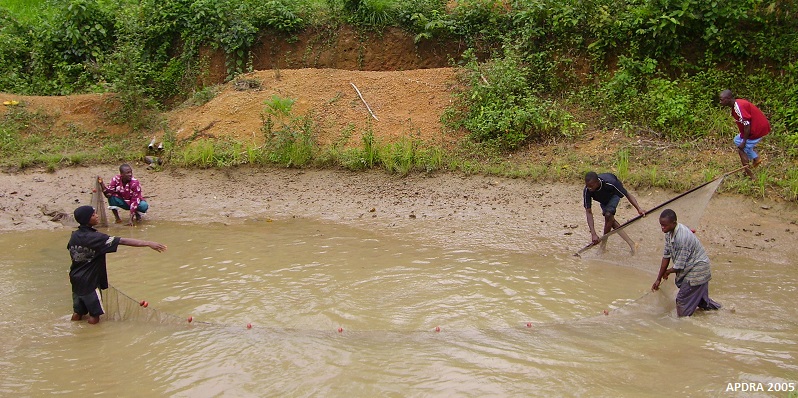
2006-2010 – Expansion of the action radius
From 2006, the APDRA initiates large scale projects in new areas: in Cameroon, the Association test an large scale model; in Madagascar it supports the rural rice-pisciculture farming. In 2008, new pisciculture development activities are undertaken in Benin, Central Africa, Liberia, Congo and Democratic Republic of Congo.
At the same time, the association become more professional and the number of employees supporting the work of the volunteers increases. In 2010, the APDRA-F changes name and becomes APDRA Pisciculture Paysanne (APDRA Farming Pisciculture), showing its willingness to get involved in all types of agro-ecological environments. This transition occurs in a context where the initiative of industrial aquaculture farms scores their first convincing success in Africa.
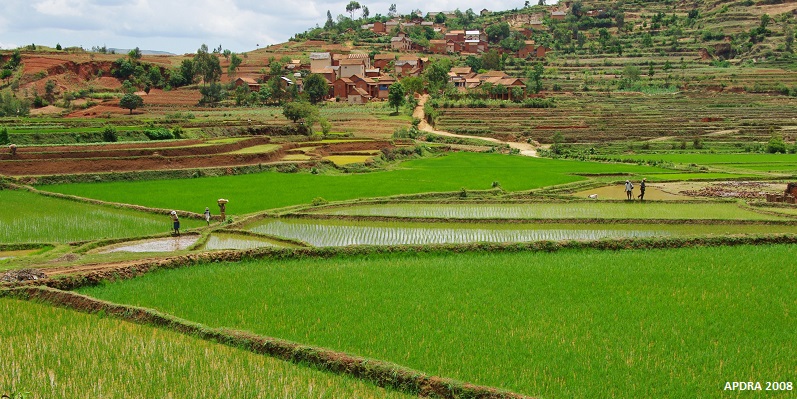
2010-2017 – Institutional acknowledgment
In 2010, the main role of rural pisciculture, that is to produce a low-cost fish with good economic return for the fish farmers, is often overshadowed by the promotion of industrial models targeting profitable markets. At the same time, the emergency to counter the continuous increase of fish import endangering food safety and the more recent flooding of local markets by the import of thousand of tonnes of tilapia from Asian aquaculture, leads to forget the quality and durability of the proposed solutions. Despite this, the APDRA benefits from the interest given to the pisciculture at International level to guarantee food safety.
From 2012, the cooperation between the APRDRA and the Guinean State offers the opportunity to start a governmental project in Guinea (Guinee Forestiere).
Further, in Madagascar, the APRDRA is recognized by the Aquaculture Ministry as being an actor of quality in promoting pisciculture.
In other countries where the APRDA is active, it carries on its activity preferably in maintaining a constant presence, thanks to the support of its financial partners. These progresses are sustained by the involvement of local teams allowing an extension of the community dynamic.
Next to the privilege relation with professional fish farmers organizations, the Association also promotes the rising of a local employees’ network allowing a novel south-south cooperation. Finally, it continues to work in partnership with scientific research institutes sharing the objective of offering a pisciculture always more fit to match the abilities and wishes of the producers.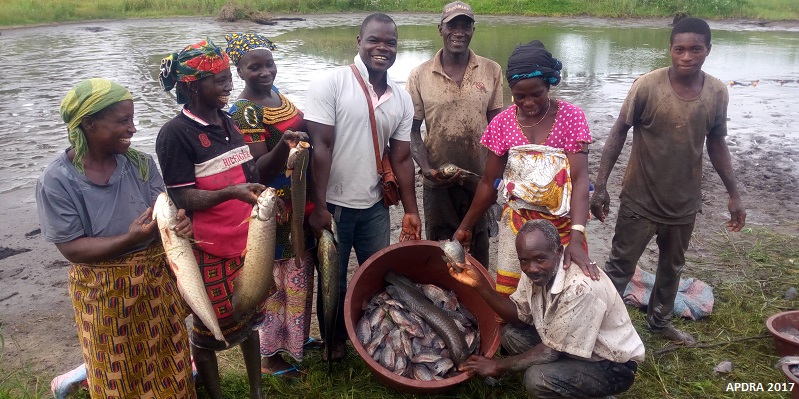
The APDRA today
The APDRA mainly intervenes via projects that it defines, formulates, puts into motion and evaluate, based on the needs of local population. It relies on a multidisciplinary team in France and abroad, consisting of employees, a network of French fish farmers, a unique network of African fish farmers, volunteers, technicians and local partners.
It intervenes or has intervened in ten African countries: Benin, Cameroon, Central Africa, Ivory Coast, Guinea, Liberia, Madagascar, Republic of Congo, Democratic Republic of Congo, Togo and it has performed studies in fifteen African countries. Since 2010, the APDRA has widened its scope of action towards Asia, in Cambodia and North Korea.
In France, the APDRA has regional offices allowing it to listen and be in close contact with the territorial collectivites. It is recognized as an Association of general interests since 2006 and is a member of the network Groupe Initiative, Coordination Sud, F3E and Sarnissa.
